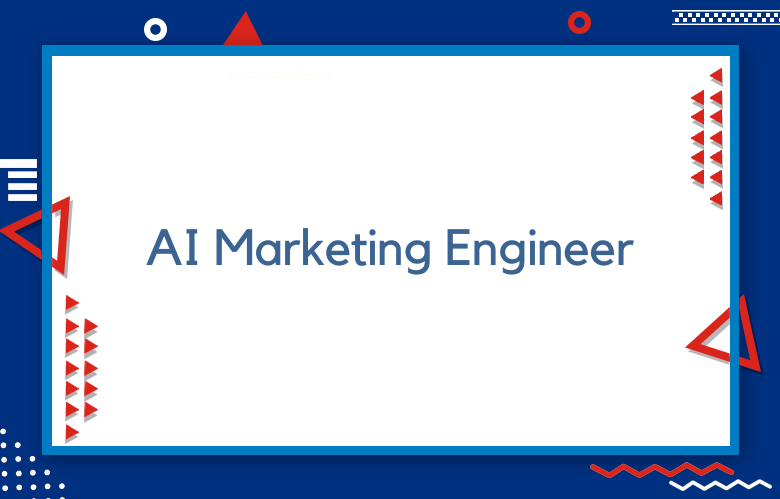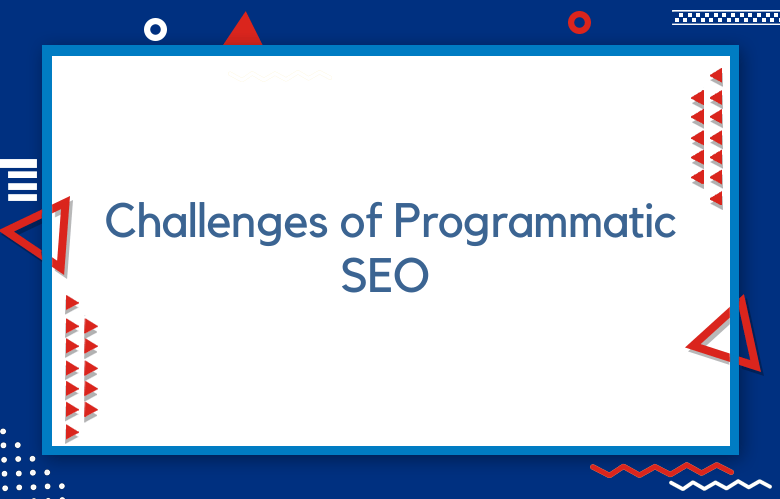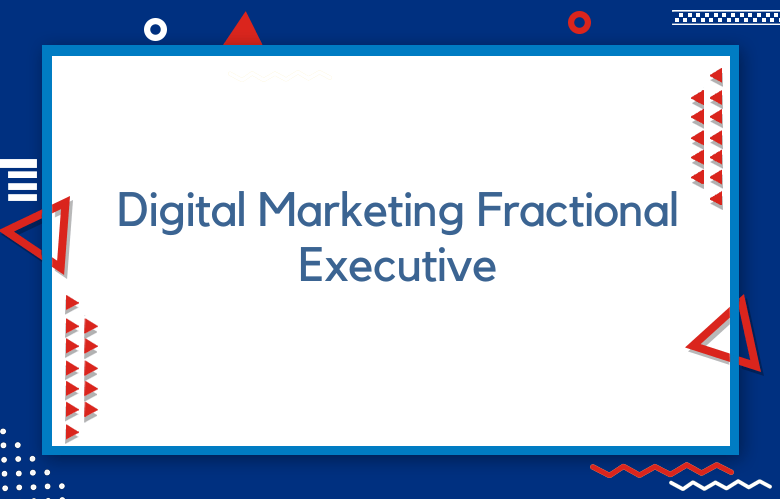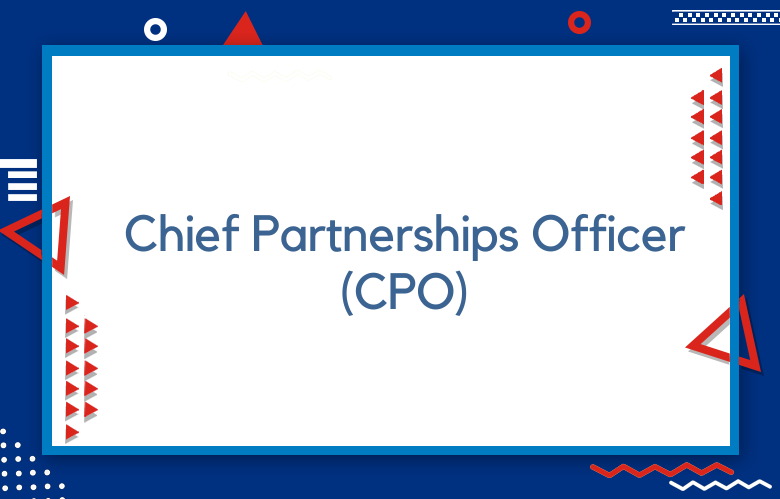The AI Marketing Engineer – Next Big Role in Tech Marketing?

Marketing has changed significantly over the past decade as companies adopt data-driven decision-making. As a result, marketing roles have grown more technical. One role drawing attention is the AI Marketing Engineer. This article explains what the job entails, why demand is increasing, and what the career path may look like.
An AI Marketing Engineer develops and runs marketing strategies that use artificial intelligence. The role partners with data science to build predictive models that forecast market trends, optimize ad spend, and analyze customer behavior. It also owns the reliability and performance of AI-driven campaigns, ensuring they operate efficiently at scale.
What is an AI Marketing Engineer?
An AI Marketing Engineer develops, deploys, maintains, and optimizes AI-driven marketing technology solutions. They build and manage systems powered by machine learning algorithms, automation software, and cognitive applications.
They collect, organize, analyze, and interpret data to identify trends and insights that guide marketing campaigns. They focus on personalizing customer experiences and delivering targeted campaigns to drive revenue growth.
Why the AI Marketing Engineer Role is Growing
Companies are using data to improve growth and customer experience, which increases sales and revenue. AI now enables the collection, processing, and analysis of large data sets for targeted campaigns.
AI Marketing Engineers apply emerging technologies to design marketing strategies optimized for measurable growth. This role is expanding because of the rise in AI use in marketing and the need for deeper insight into consumer behavior.
How AI Transforms Marketing
AI lets marketers gather large amounts of data, analyze it quickly, and extract actionable insights. Using these insights, marketers can create personalized campaigns, target specific audiences, predict customer behavior, and adjust strategies in real time. AI-based tools also automate repetitive tasks such as lead scoring, content creation, and A/B testing, freeing marketers to focus on strategy and optimization.
Skills and Qualifications for an AI Marketing Engineer
This role requires a combination of technical and marketing skills. A bachelor’s degree in marketing, computer science, or a related field is common. Key competencies include programming in Python and R, SQL, machine learning, analytics, and big data.
AI Marketing Engineers need strong analytical and coordination skills, collaborative working habits, and critical thinking and problem-solving abilities. Experience with marketing automation tools, CRM systems, and data platforms such as Google Analytics or Oracle is also essential.
Job Prospects
As marketing shifts toward personalization, demand for AI Marketing Engineers continues to rise. Opportunities exist in organizations of all sizes that need AI-driven marketing solutions.
AI Marketing Engineers work with product development teams, marketing agencies, and data scientists to implement AI solutions that improve customer engagement and revenue. They can contribute to industries such as banking, e-commerce, and healthcare. Reported salaries range from 80,000 to 130,000 dollars annually, depending on experience and expertise. (This salary data should be supported with a source if used in a publication.)
Role in Digital Marketing
An AI Marketing Engineer reshapes how companies interact with customers. They use AI-powered tools to analyze browsing history, engagement metrics, and purchase behaviors, then develop predictive algorithms to anticipate customer needs.
They apply these insights to design personalized content, offers, and recommendations that resonate with individual customers.
Future Demand
As AI advances and becomes more accessible, demand for AI Marketing Engineers will grow. The role blends marketing, data science, and programming, a combination of skills that remains scarce.
Organizations investing in AI-driven marketing are likely to hire more AI Marketing Engineers to maintain a competitive edge. As more companies adopt digital marketing strategies, these engineers will assume increasingly prominent responsibilities. This trend increases the need for professionals skilled in data science, programming, AI, and machine learning to keep pace with rapid technological change.
Understanding the Role
An AI Marketing Engineer develops, implements, and manages AI-based marketing strategies to improve business performance. They apply artificial intelligence and machine learning to build marketing models, create campaigns, and analyze online data. Their goal is to improve customer experience, engagement, and retention through personalized strategies.
Importance in Tech Marketing
Integrating AI into marketing allows businesses to collect valuable information about customer preferences and behaviors, then tailor messages to them in real time. AI Marketing Engineers develop the models and campaigns that make this possible and help marketing teams build and deploy practical AI tools.
Beyond Buzzwords: How the AI Marketing Engineer Turbo-Charges Growth, Slashes CAC, and Future-Proofs Your Martech Stack
The AI Marketing Engineer is an emerging, highly technical role reshaping marketing operations. Confusion about its scope has slowed its impact. Unlike marketers who only use AI tools, these engineers build them, integrating generative AI, automation pipelines, and custom models directly into the martech stack.
Organizations deploying this role report measurable gains. Firms using AI-built marketing tools achieve an average 37 percent reduction in customer acquisition cost (CAC). Bayer, for example, recorded an 85 percent year-over-year increase in click-through rate.
However, many AI pilots fail due to unclear objectives, fragmented data, and weak ethical controls.
Demand for this hybrid skill set is accelerating. U.S. job postings requiring generative AI skills rose from a handful in 2021 to nearly 10,000 by May 2025, with pay ranging from $ 140,000 to more than $ 250,000 per year. This competition calls for a “hire and upskill” strategy that values demonstrable portfolios over traditional credentials.
Targeted training from providers such as the Digital Marketing Institute or HubSpot Academy can lift key competencies like prompt engineering by 30 percent at a fraction of new-hire costs.
Integrating this role requires an intentional shift from a centralized Center of Excellence to a more agile hub-and-spoke structure, which can double AI adoption speed.
It also demands robust controls to counter “Shadow AI” and prevent brand-unsafe outputs through clear guardrails, red-team testing, and strong monitoring.
The AI Marketing Engineer represents a strategic move to build an intelligent and automated marketing engine delivering compounding returns.
Definition and Scope
The term “AI Marketing Engineer” encompasses three distinct concepts: a technical job role, training programs, and a consultancy name.
For hiring and planning, it should be defined as a technical professional who architects and integrates AI solutions into marketing operations.
Core Job Function
An AI Marketing Engineer designs, builds, and integrates AI-powered solutions directly into marketing workflows. This person creates custom tools, automation pipelines, and integrations that drive efficiency and personalization.
They convert marketing objectives into functional AI-driven applications through prompt engineering, model fine-tuning, and API integration.
Differentiation from Other Roles
An AI Marketing Specialist uses and optimizes existing AI tools, whereas the engineer builds and integrates them.
A general Marketing Engineer blends technology and marketing, but the AI Marketing Engineer focuses specifically on generative AI.
A Growth Engineer builds automated systems for the entire funnel, while the AI Marketing Engineer targets AI-powered marketing tools.
A Machine Learning Engineer develops core models, while the AI Marketing Engineer applies them within marketing.
Prompt engineering is not a separate role but a core skill within this position. These distinctions prevent overlap and ensure that the engineer concentrates on operationalizing AI in marketing.
Example in Practice
Dentsu employs AI Marketing Engineers to develop generative AI applications such as briefing assistants and creative generators.
Responsibilities include building applications end-to-end, designing and optimizing prompts for large language models, and creating robust automation pipelines using tools like n8n or Make.
Integration happens through APIs, webhooks, and custom scripts. This illustrates the hands-on technical nature of the job and its focus on the practical application of large language models.
Business Impact and ROI
AI-native marketing delivers documented results. Companies using AI marketing solutions achieve an average 37 percent drop in CAC. Gains include higher targeting precision, improved conversion rates, and greater automation efficiency.
Combined, these improvements can result in a reduction of over 50 percent in CAC.
Case examples show repeatable benefits. Bayer achieved an 85 percent increase in click-through rate, a 33 percent drop in click cost, and a 2.6 times increase in website traffic. 24Sales automated Ideal Customer Profile creation, cutting time from four hours to 30 minutes and saving 12,000 dollars annually.
JB Impact integrated AI tools across its funnel and cut CAC by 30 percent while boosting email open and click rates. Salesforce used generative AI in Einstein 1 for personalized emails and increased engagement by 28 percent.
Sage Publishing automated textbook copy generation with Jasper AI. Unilever processes 1.5 petabytes of consumer data annually for product ideas and creative content.
Despite these successes, many pilots fail because of unclear objectives, poor system integration, and siloed data. Starting with small, well-defined pilots, building a solid data foundation, and setting measurable objectives are prerequisites for scale.
Labor Market Dynamics
Job postings for generative AI skills grew from 55 in January 2021 to nearly 10,000 by May 2025. Salaries for roles combining AI and marketing average about $ 196,000, with a range from $ 140,000 to more than $ 250,000.
The AI engineer workforce is projected to grow 26 percent from 2023 to 2033, outpacing most occupations.
The limited supply of candidates with both programming expertise and marketing knowledge drives salary inflation and competition. Organizations that act early gain a hiring advantage. Upskilling existing staff provides a cost-effective way to fill roles and create a sustainable pipeline.
Core Competencies
A successful AI Marketing Engineer combines deep technical skills, marketing knowledge, and strong soft skills.
Technical expertise includes AI/ML applications, programming in Python or R, SQL, API development, prompt engineering for generative AI, and workflow automation with tools like n8n, Make, or Copilot Studio.
Marketing knowledge spans strategy, customer lifecycle management, predictive models, and attribution measurement.
Soft skills include clear communication with non-technical stakeholders, experimentation, rapid iteration, and adaptability to evolving tools and ethical standards.
Technology and Tools
The AI Marketing Engineer works within a modular technology environment. Foundational models (OpenAI, Anthropic, Google Cloud AI) and vector databases (Pinecone, Weaviate) form the base of intelligent applications.
Orchestration frameworks, such as LangChain, and workflow automation platforms, like Zapier or n8n, connect components, enabling sophisticated agents without requiring the building of everything from scratch.
Organizations must weigh integrated martech suites with built-in AI (such as Salesforce Einstein) against best-of-breed stacks.
Integrated suites offer speed and a unified experience, while best-of-breed solutions provide flexibility and avoid vendor lock-in. The engineer designs hybrid architectures, balancing both.
Reference Architectures
Scaling content generation can follow a four-layer model:
- A data processing layer that structures input data from CRM systems and personalization platforms.
- A generative model layer housing core models and prompt logic.
- An improvement layer using A/B testing, feedback loops, and performance monitoring to refine prompts and models.
- An integration layer connecting output to marketing automation platforms.
Cost control is essential. Tactics include caching frequently generated content, using simpler models for routine tasks, batching requests, and setting usage limits to prevent overruns.
Operating Models for AI Teams
Early-stage organizations benefit from a centralized Center of Excellence that accelerates adoption, establishes standards, and proves value through high-ROI projects.
As maturity grows, a hub-and-spoke model embeds AI talent within business units while maintaining central standards and infrastructure, thereby speeding up adoption and relevance.
The most advanced organizations operate a fully embedded model where AI is integrated into every function.
Hiring and Upskilling
Hiring should prioritize portfolios demonstrating measurable results over credentials. Skill tests and scenario-based assessments validate competence.
Internal development is cost-effective: structured micro-learning programs from HubSpot Academy, Digital Marketing Institute, LinkedIn Learning, Harvard DCE, or Cornell can quickly raise competencies.
Onboarding should follow a 90-day plan: immersion in the martech stack and KPIs in the first month, building a high-impact prototype in the second, and deploying a pilot with monitoring and a roadmap in the third.
Pairing new hires with mentors from marketing and engineering accelerates integration.
Risk Management and Ethics
Integrating AI into marketing introduces new risks. Organizations must set policies to control unapproved tool usage, invest in reskilling, address resistance to change, and establish ethical frameworks with continuous testing for bias and misuse.
Data privacy and security require anonymization, encryption, and strict access controls. Integrating new AI components with legacy systems should follow careful planning and phased rollout.
Strong change management supports success. This includes a comprehensive plan for skills, governance, and ROI measurement; robust guardrails to ensure high-quality, compliant outputs; and observability frameworks to monitor performance with A/B testing and real-time telemetry.
Systems must comply with regulations like GDPR and CCPA, with regular audits for bias and harmful outputs.
Vendors and Partnerships
Building in-house capability is ideal long-term, but partnering with specialized consultancies can deliver quick wins.
For example, AI Marketing Engineers in St. Petersburg, Florida, offer performance marketing, analytics, and an attribution platform called AttriSight on a performance-based model.
Engaging such firms accelerates progress but may reduce control and create dependency.
Organizations should decide whether to build, buy, or partner based on strategic importance, speed to market, budget, customization needs, and flexibility.
Roadmap and Action Plan
A phased 12-month approach captures value quickly.
0–3 months: Hire or assign the first AI Marketing Engineer, and launch a low-risk, high-impact pilot such as an automated briefing assistant or ICP tool.
4–9 months: Transition from a centralized model to hub-and-spoke, roll out generative AI guardrails, and launch a personalized email campaign powered by a custom AI model.
10–12 months: Implement cost-control measures, experiment with multimodal AI for creative asset generation, and ensure the program is scalable and cost-effective.
Summary
The AI Marketing Engineer role is expanding in response to the growing need for data-driven decision-making and new technologies in marketing. It requires a unique skill set that combines technical expertise with marketing knowledge. As AI adoption accelerates, this position will become an essential part of marketing teams across industries.
AI Marketing Engineer — FAQs
What Is An AI Marketing Engineer?
An AI Marketing Engineer is a technical marketer who designs, builds, and integrates AI-powered systems—such as predictive models, generative tools, and automation pipelines—directly into the martech stack to drive measurable growth.
How Is This Role Different From An AI Marketing Specialist Or ML Engineer?
Specialists mainly use off-the-shelf tools; AI Marketing Engineers build and integrate them. ML Engineers develop core models; AI Marketing Engineers operationalize those models inside marketing workflows and platforms.
What Business Problems Does An AI Marketing Engineer Solve First?
Reducing CAC, improving conversion rates, accelerating content operations, scaling personalization, and automating repetitive tasks like audience building, lead scoring, and experimentation.
Which Skills Are Essential For The Role?
Python or R, SQL, APIs, prompt engineering, ML application patterns, data pipelines, and workflow automation (e.g., n8n/Make/Zapier). On the marketing side: lifecycle strategy, attribution, experimentation, and measurement.
What Tools And Platforms Do They Commonly Use?
LLM providers (OpenAI, Anthropic, Google), vector databases (Pinecone, Weaviate), orchestration (LangChain), analytics (GA4, Mixpanel), CDPs/CRMs (Salesforce, HubSpot), and automation (n8n, Make, Zapier).
What Does A Typical 90-Day Onboarding Plan Look Like?
Month 1: audit data, stack, and KPIs. Month 2: ship a high-impact prototype (e.g., creative brief assistant or ICP generator). Month 3: run a monitored pilot with guardrails, telemetry, and a scale roadmap.
How Does This Role Reduce Customer Acquisition Cost (CAC)?
By improving targeting precision, automating experimentation, and dynamically allocating spend using predictive signals—often compounding into materially lower CAC and higher ROI over time.
What Operating Model Works Best For Adoption?
Start with a centralized Center of Excellence to set standards and quick wins, then move to a hub-and-spoke model that embeds engineers with business units while keeping shared governance and infrastructure.
How Do Companies Control AI Costs In Marketing?
Use model tiering (cheap models for routine tasks), caching, batching requests, token limits, scheduled jobs, and systematic prompt/model evaluations to avoid performance drift and runaway costs.
What Are The Biggest Risks And How Are They Mitigated?
Shadow AI, bias, brand-unsafe outputs, data leakage, and integration fragility. Mitigate with clear policies, red-team testing, role-based access, anonymization, encryption, human-in-the-loop reviews, and audit logs.
How Should Success Be Measured?
Business outcomes (CAC, LTV, revenue lift), operational efficiency (cycle time, content throughput), and model quality (precision/recall, win-rate uplift, response usefulness). Tie each AI initiative to a KPI tree.
What Data Foundations Are Needed Before Scaling?
Clean identity resolution, consent management, reliable event tracking, a shared feature store, metadata standards for content, and governance for data access and retention.
What Is A Practical First Use Case?
A generative brief assistant that ingests product, audience, and performance data to produce on-brand copy variants and experiment plans—fully logged, versioned, and integrated with your CMS/ESP.
How Do AI Marketing Engineers Work With Creative Teams?
They co-design prompts and templates, build brand guardrails, automate variant generation, and wire outputs into review workflows so creatives spend time on direction and refinement, not manual production.
Should We Build In-House Or Partner With A Consultancy?
If speed and capability gaps are urgent, partner for quick wins. For strategic advantage and differentiation, develop in-house talent. Many teams do both: partner to bootstrap, then hire and upskill.
What Training Paths Help Upskill Existing Staff?
Targeted micro-learning on LLM apps, prompt design, data privacy, and experimentation; hands-on sprints; internal demo days; and portfolio-based assessments. Reputable options include DMI, HubSpot Academy, LinkedIn Learning, and university extensions.
How Do Guardrails And Governance Work In Practice?
Define allowed use cases, brand/style constraints, safety filters, PII handling, and reviewer checkpoints. Monitor with A/B tests, feedback loops, and incident response for model or prompt regressions.
What Career Path Can An AI Marketing Engineer Pursue?
Senior/Principal Engineer, Marketing AI Architect, AI Product Lead, Growth Engineering Manager, or Head of Marketing AI—often expanding into platform ownership and cross-functional leadership.
What Salaries Should Employers Expect?
Compensation varies by geography, industry, and seniority. Benchmarks for roles combining AI and marketing skills tend to exceed standard marketing engineer bands; validate with current market data before publishing figures.
Which Industries Benefit Most Right Now?
E-commerce, SaaS, financial services, healthcare, media, and marketplaces—anywhere with rich first-party data, high experimentation velocity, and measurable funnel economics.
Call: +91 9848321284
Email: [email protected]



